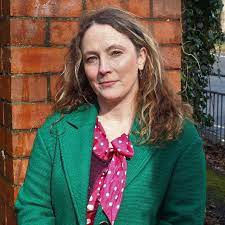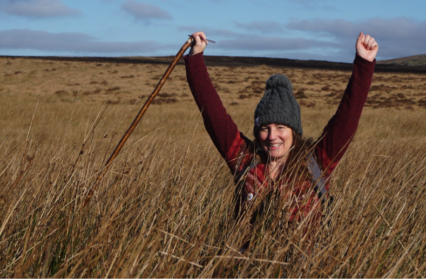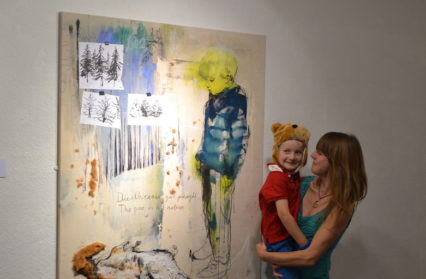Poet clare e. potter begins looking back on A.i.R and the lessons she learned pushing herself to the limits for her residency project, and what has happened since. Throughout 2017 these artists, including clare e. potter will take a leading creative role in what Wales Arts Review publishes, centring their skills on a challenging project over the course of a month. We were inundated with applications, receiving hundreds of emails about the positions, and it was no easy task whittling down all that talent to this final eleven. Our team of six editors debated long into the night, and in the end, we decided on a collection of people who we most want to work with, and whose work excites us. We think you will be excited by them too.
Looking Back On A.i.R by clare e. potter

October 2017 will stand out as a productive, enjoyable, and challenging month. My residency for that period was incredibly stimulating and I learned a great deal—about sound editing, the Welsh language, people’s connections to their river, local history and how (not) to interview people. The whole process has compelled me to continue to explore the rivers and my relationship with them. I loved being a poet on the move, connecting in diverse ways to various stretches of the Rhymni and Sirhowi.
My father kept calling me the River Laureate. I don’t want to give up that moniker too readily; in fact, I’m about to start a rivers project with a storyteller and filmmaker at Abercynon Community Primary school as part of the Arts Council Lead Creative School Scheme—a direct result of this residency with Wales Arts Review.
I managed to learn the basics of Audacity software, but realise I need to push this further, become more innovative in using sounds; I’m determined to build on my new-found skills. I felt privileged to walk with and interview people: my father (the river and its relationship to the coal industry), Jeff Chard (the river and our childhood memories, the search for otters and the necessity for conservation), and Dr Elin Jones (the river and the Welsh language). Everything seemed connected, past/industry, and future/conservation—of nature and our national language.
It was trying to find the source of the Sirhowi with Dad thought that stays with me. The silences between us, hysterics as we were stuck in peat bogs, lost in sedge for hours. I learned my father new, his burgeoning poetry, his eagerness like mine to find the spot where the river began. We were on a journey that day that took on huge symbolism as we were exhausted and elated all at once. Poems to follow.
I’m grateful to Wales Arts Review who once again have significantly contributed to my creative development.
You can explore all of the work clare did for her residency here and explore the work from the other chosen artists residencies here.












